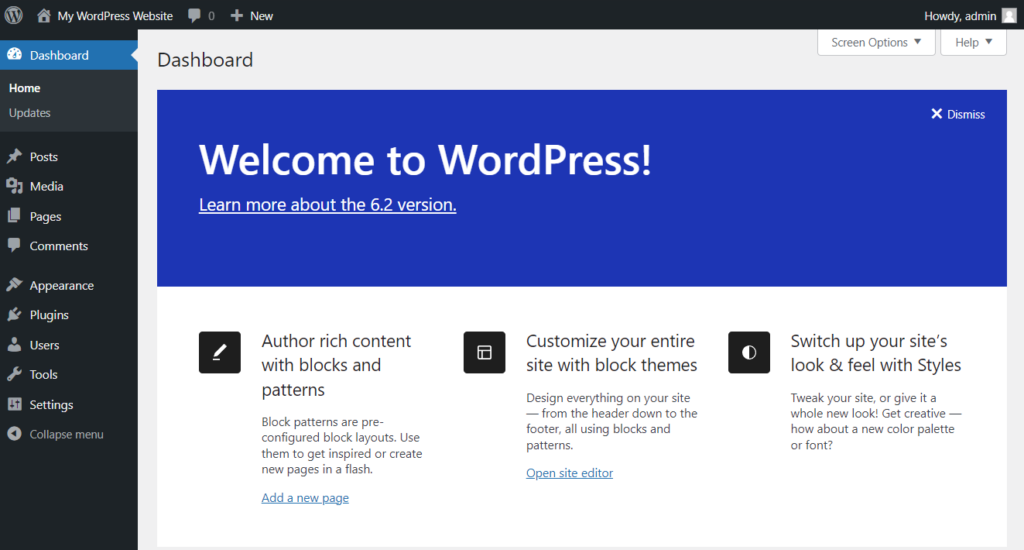Understanding the Difference Between OwnCloud
In the realm of cloud storage solutions, OwnCloud and N...






When choosing the right CMS for your website, WordPress and Drupal are two of the most popular options available. While both have their advantages, the choice between the two depends on the complexity of your website and your level of technical expertise. Let’s dive into the features, benefits, and differences between WordPress and Drupal to help you make an informed decision.
WordPress is an open-source CMS that started as a blogging platform but has evolved into a full-fledged website solution. It is the most popular CMS, powering over 40% of websites worldwide. WordPress is known for its ease of use, extensive library of plugins, and large community.

Key Features of WordPress:
Drupal is another open-source CMS, but it is designed for more complex websites and is preferred by developers. It offers greater flexibility, scalability, and customization options, making it suitable for enterprise-level websites, government sites, and large-scale applications.
Key Features of Drupal:

To help you decide which CMS is better suited for your needs, here’s a detailed comparison table:
| Feature | WordPress | Drupal |
|---|---|---|
| Ease of Use | Extremely user-friendly, ideal for beginners | Steeper learning curve, designed for developers |
| Customization | Easy customization with themes and plugins | Highly customizable with deeper configuration options |
| Security | Generally secure, but vulnerable to attacks if not properly maintained | Strong security features, often preferred for high-security sites |
| Performance | Can be slower with too many plugins, but can be optimized | High performance, especially for large-scale, complex websites |
| SEO | SEO-friendly with plugins like Yoast SEO | SEO-friendly, but requires more manual effort |
| Community & Support | Large community with plenty of resources and support | Smaller community, but dedicated to enterprise solutions |
| Best For | Blogs, small to medium-sized businesses, and personal websites | Complex websites, enterprise-level sites, government agencies |
| Themes & Plugins | Thousands of themes and plugins available | Fewer themes and plugins, but more powerful custom solutions |
| Content Management | Simple content management for blogs and basic websites | Advanced content management with custom content types and workflows |
| Learning Curve | Very low – suitable for beginners | High – suitable for developers or those with technical knowledge |
WordPress is designed to be user-friendly, even for beginners with no technical background. It allows you to create and manage content easily without having to worry about the technical details. On the other hand, Drupal is more complex and is better suited for developers who are comfortable with advanced configurations and code customizations.
WordPress is highly customizable through its vast library of themes and plugins. While it offers a lot of flexibility, the degree of customization can be limited for larger, more complex websites. Drupal, however, offers greater flexibility and customization options, making it the go-to platform for complex websites with specific requirements.
Drupal is often seen as the more secure platform of the two, especially for large, enterprise-level websites. It offers built-in security features and is frequently used by government agencies and large organizations due to its strong security measures. WordPress, being the most popular CMS, is more commonly targeted by hackers, but it also has several security plugins to help mitigate risks.
Both WordPress and Drupal are SEO-friendly, but WordPress has a slight edge due to its abundance of SEO plugins, such as Yoast SEO and All in One SEO Pack, which simplify optimization for beginners. While Drupal can also be optimized for SEO, the process is more manual and requires a deeper understanding of SEO best practices.
Drupal generally outperforms WordPress when it comes to handling complex websites with large amounts of content or high traffic. It is optimized for performance, scalability, and high-volume applications. WordPress, while fast in many scenarios, can slow down if too many plugins are added or if the website isn’t optimized properly.
WordPress is ideal for managing basic content such as blogs or static pages. It has a simple content management system that is easy to use. Drupal, however, excels at handling complex content structures, custom content types, and advanced workflows, making it a better choice for large websites or websites with intricate content management needs.
Both WordPress and Drupal are free to use, but the costs can vary depending on your needs. WordPress sites can often be run on inexpensive hosting plans, while Drupal sites may require more robust hosting solutions due to their complexity.
You should choose WordPress if:
You should choose Drupal if:
Both WordPress and Drupal offer unique advantages, and the right choice depends on your website’s needs. If you’re looking for a simple, user-friendly platform to launch a blog or a small business website, WordPress is the ideal choice. However, if you need a highly customizable, secure, and scalable solution for a large or complex website, Drupal is the better option.
Regardless of the CMS you choose, it is essential to have reliable hosting. SurferCloud offers high-performance hosting optimized for both WordPress and Drupal. With 24/7 customer support, global data center locations, and optimized server configurations, SurferCloud ensures that your website runs smoothly and securely. Whether you are using WordPress for a personal blog or Drupal for a large enterprise website, SurferCloud provides the infrastructure to support your growing needs.
In the realm of cloud storage solutions, OwnCloud and N...
Finding a reliable VPS provider in Oman can be challeng...
The Middle East has rapidly become one of the world’s...